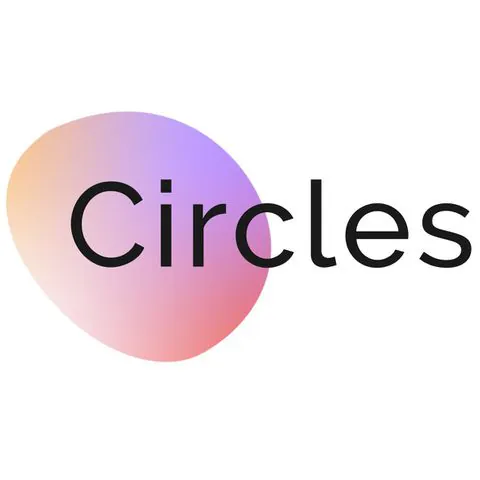Your Recovery, Your Way: Outpatient Rehab Options
Recovery from addiction is a deeply personal journey—one that looks different for everyone. While some may benefit from immersive, inpatient care, others thrive in more flexible environments that allow them to maintain their daily responsibilities. That’s where outpatient rehab comes in.
Outpatient programs are becoming increasingly popular for their ability to offer structured, effective treatment without requiring a full-time stay. Whether you're balancing work, school, or family life, outpatient rehab can provide the support you need while allowing you to remain active in your community.
In this guide, we’ll explore the different types of outpatient rehab programs, their benefits, key considerations, and how to choose the right one for your unique needs. If you’re ready to take control of your recovery, outpatient rehab might be the empowering solution you’ve been looking for.
No. 1
Understanding Outpatient Rehab: An Overview
What Is Outpatient Rehab?
Outpatient rehab refers to treatment for substance use disorder that doesn’t require a residential stay. Unlike inpatient programs—where individuals live at the facility—outpatient care allows you to return home after each session.
These programs typically include therapy, counseling, and medication management, all designed to support recovery while you continue with your daily life.
Who Is It For?
Outpatient rehab is ideal for individuals with moderate addiction, strong motivation to recover, and a stable, substance-free home environment. While some may assume outpatient care is less intensive, it can be just as effective when matched to the right person.
Success depends on aligning your needs, lifestyle, and commitment with the appropriate level of care.
Effectiveness and Success Rates
Research shows that outpatient rehab Orange County and other areas can yield high success rates—especially when combined with additional support like 12-step programs or peer groups.
The key to success lies in active participation, consistency, and a well-structured treatment plan tailored to your recovery goals.
Circles
A safe place to share
or listen anonymously.
Listen, relate and connect with others
in an audio-only setting that shows
only your first name.
No. 2
Types of Outpatient Rehab Programs
Partial Hospitalization Programs (PHP)
PHPs are the most intensive form of outpatient care. Patients attend treatment for several hours each day but return home in the evenings.
This option is ideal for those transitioning from inpatient care or those who need a high level of support without 24-hour supervision. PHPs provide structure while allowing personal freedom during non-treatment hours.
Intensive Outpatient Programs (IOP)
IOPs offer a balanced approach, with therapy and counseling sessions scheduled several times per week—often in the mornings or evenings.
This setup is perfect for individuals who are ready to step down from more intensive treatment but still need regular guidance and accountability.
Standard Outpatient Treatment (OP)
OP is the most flexible option, typically involving one or two sessions per week. It’s best suited for those in early recovery or with mild substance use issues.
This format allows for maximum independence while still providing essential support.
Specialized Outpatient Services
Some outpatient programs are tailored to meet specific needs, such as:
Co-occurring mental health conditions
Family-focused therapy
Faith-based recovery
Workplace-related addiction support
These specialized services ensure that treatment is relevant and responsive to your personal circumstances.
No. 3
Key Benefits of Outpatient Rehab
Flexibility and Independence
One of the most significant advantages of outpatient rehab is the ability to stay connected to your everyday life. You can continue working, attending school, or caring for loved ones while receiving treatment.
This flexibility helps integrate recovery into your routine, making it more sustainable long-term.
Cost-Effectiveness
Outpatient programs are generally more affordable than inpatient care, as you’re not paying for room and board.
Many insurance plans cover outpatient services, and staying at home reduces additional expenses like travel or lodging.
Continuity of Care
Remaining in your community allows you to maintain support from friends, family, and local resources.
This continuity reinforces your recovery and helps you stay grounded in your goals.
Reduced Disruption
Outpatient rehab minimizes disruption to your life. It allows for a smoother transition back into daily routines and fosters confidence in your ability to maintain sobriety post-treatment.
No. 4
Considerations Before Choosing Outpatient Rehab
Assessing the Severity of Addiction
A professional evaluation is essential to determine whether outpatient care is appropriate.
For severe addiction, inpatient treatment might be necessary initially, with outpatient care as a follow-up.
Support Systems and Environment
A stable, substance-free home environment is crucial. If your surroundings are filled with triggers or lack support, outpatient rehab may not be the best fit.
Having encouraging family or friends can significantly impact your success.
Commitment and Motivation
Outpatient rehab requires dedication. Are you ready to attend sessions regularly and put in the work?
Believing in your ability to change and committing to the process are vital for long-term success.
Insurance and Financial Factors
Before enrolling, review your insurance coverage to understand what’s included.
Many plans cover outpatient rehab, but it’s wise to clarify costs upfront to avoid unexpected expenses.
Potential Challenges
Outpatient care means you’ll face real-world triggers daily.
Having a plan in place—like coping strategies, emergency contacts, or a support group—can help you navigate these challenges and stay on track.
No. 5
How to Choose the Right Outpatient Rehab Program
Research and Accreditation
Choose programs that are licensed and accredited.
Read reviews, check credentials, and ask about their success rates and treatment approaches.
Treatment Approach and Philosophy
Ensure the program aligns with your values and recovery goals.
Do they offer therapy, medication-assisted treatment, or family involvement? Choose a program that resonates with your needs.
Staff Qualifications and Experience
Qualified professionals make a difference.
Look for licensed counselors, therapists, and medical staff with experience in addiction treatment.
Programming Flexibility
Does the schedule work for your lifestyle?
Consider the location, session times, and available services like job placement or childcare support.
Patient Reviews and Testimonials
Hearing from past participants can offer valuable insight.
Look for testimonials that speak to the program’s effectiveness, environment, and support system.
No. 6
Actionable Tips for a Successful Outpatient Rehab Journey
Build a strong support network of friends, family, or peers.
Create a structured daily routine to stay focused.
Engage fully in therapy sessions and support groups.
Set small, achievable goals and celebrate your progress.
Prepare for cravings or setbacks with a solid action plan.
Takeaways
Choosing outpatient rehab means choosing a recovery path that fits your life. It offers flexibility, affordability, and the opportunity to heal without stepping away from your responsibilities.
By staying committed, building a support system, and selecting a program that aligns with your needs, you can achieve lasting sobriety—on your terms.
Remember, recovery is not one-size-fits-all. With the right outpatient rehab program, you can move forward confidently and reclaim control of your future.
Explore your options today—because your recovery deserves to be as unique as you are.
Looking for Wellness resources?
Are you looking to enhance your wellness routine? Explore our wellness partners who offer a wide range of resources to support your journey toward holistic living and well-being.































